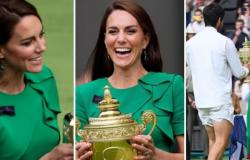From a play by Filippo Gili, directed by Francesco Frangipane who also directed the film, a story that talks about an impossible and cruel choice that two children are forced to make. Daniela Catelli’s review.
Antonio and Elena are two twin brothers, adults and without companions. The former lives in close contact with nature, the latter teaches swimming to children. The parents are a bourgeois couple, without relatives. The doctors reveal to the children that their father and mother both suffer from a dangerous and serious syndrome and need a stem cell transplant, assuring them that everything will be resolved if, as is highly probable, both prove to be compatible donors. Life, however, doesn’t care about possibilities, putting them face to face with a tragic choice: only Elena is able to undergo the operation and therefore they must decide which parent to save. Who will they sentence to certain death?
From the top of a cold towerfilm adaptation of the second chapter of a theatrical trilogy, written by Philip Gili and brought to success at the theatre right from Vanessa Scalerawho reprises her role as Elena in the film, is the film debut of Francesco Frangipane, artistic director of the virtuous Teatro Argot Studio in Rome, heir to the splendid Roman tradition of off-stage theatres, where many actors have confronted themselves over the years with unpublished texts and experimental dramaturgy, in front of an audience seated a few meters away. A fundamental training ground that has allowed the discovery of young authors and that of performers who are now renowned for their film and television work. Such as, in addition to Scalera, Giorgio Colangeli, who plays the father here. They come from other routes instead Edoardo Pesce (Antonio) e Anna Bonaiuto (the mother), who combine their indisputable talents to put them at the service of an ambitious and paradoxical text, .
Strangers or relatives usually ask children with a smile whether they love their mother or father more: if the choice is made, everyone has a good laugh, including the parents. They know that it is impossible to quantify the love for those who protect and care for you and that preferences make no sense at that age and often change with circumstances. As adults, you may play “who would you throw down the tower?”, in which you are asked to choose between several characters, one of which must necessarily be sacrificed. But the dilemma that Antonio and Elena are facing is an existential one, it is not a game, it confronts them with their fragilities, their anger, the frustrations of a life and the impossibility of making a choice following criteria impossibly rational or listening to instinct. Science, for its part, demands an answer: which life should we save? The assumption at the center of the story is clearly paradoxical, like the questions above, but it asks us to try to think about our responsibility towards the people we love, it puts us face to face with those moments in life in which we would like everything to do except choose, but we must choose because this is what adults must do to move forward.
Who do you want to save? Who do you want to kill? Do you want your father or mother to be abandoned to their fate? If you knew they were irreversibly ill, would you want science to work hard to prolong even that kind of life for them or would you prefer to let them go? Would you be able to claim the right to make a choice that involves such a huge moral problem? From the top of a cold tower he does not give and is not interested in giving theoretical answers, he only shows us the effects of the decision (or non-decision) on whoever has to make it, i.e. two children who have never really grown up, unleashing their need for love, accentuating the differences in character and exasperating the conflict in relationships with parents (normal dynamics, here exasperated by the fact that only the children are aware of what is still a secret). From the top of a cold tower poses the existential questions that the characters of a Greek tragedy, which here takes place in a bourgeois environment, face, in the indifference of the gods. The film narrates this conflict in a way that is at times rarefied and a little cold, suffocating like the air you can barely breathe at the top of that tower in which the story, starting from the parents and ending with the children, is enclosed in a circular manner. If here and there the metaphor and theatricality of a deliberately absurd assumption appear all too clearly, it is certainly not a vision that leaves one indifferent, also thanks to a quartet of actors in a state of grace.





